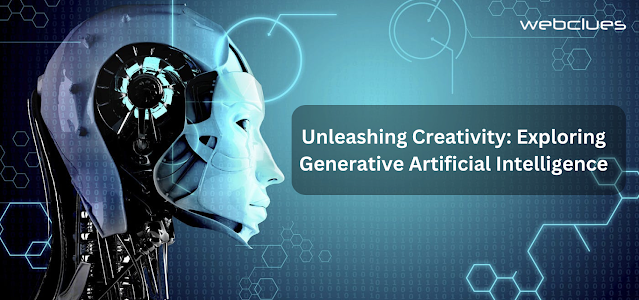At its core, generative AI involves the use of algorithms to generate new content that mimics or extends existing patterns. Unlike traditional AI systems that rely on predefined rules and datasets, generative AI can produce novel outputs by learning from large datasets and identifying underlying patterns. This ability to create something new from existing data is what makes generative AI such a powerful tool for fostering creativity.
One of the most prominent applications of generative AI is in the field of visual arts. Artists and designers are leveraging generative algorithms to produce stunning visuals that challenge traditional notions of aesthetics. For example, researchers have developed generative adversarial networks (GANs), which pit two neural networks against each other to generate realistic images. This technology has been used to create everything from lifelike portraits to abstract landscapes, blurring the lines between human and machine creativity.
In addition to visual arts, generative artificial intelligence is also making waves in the world of music composition. Musicians and composers are exploring the potential of AI to generate original melodies, harmonies, and rhythms. By training AI models on vast repositories of musical data, researchers have developed systems capable of composing music in various styles and genres. These AI-generated compositions often challenge our preconceptions about what constitutes "good" music, opening up new possibilities for sonic experimentation and innovation.
Furthermore, generative AI is revolutionizing storytelling and literature. Authors and writers are using AI-powered tools to generate plotlines, characters, and even entire narratives. By analyzing vast corpora of text, AI models can identify recurring themes, structures, and linguistic patterns, which can then be used to generate new stories. This technology not only aids writers in overcoming creative blocks but also enables them to explore unconventional narrative forms and styles.
Beyond the realms of art and literature, generative AI is also being applied to fields such as fashion design, product development, and architectural visualization. Designers and engineers are using AI to generate novel concepts, prototypes, and designs, streamlining the creative process and accelerating innovation. For example, companies are employing generative design algorithms to optimize the performance and aesthetics of products, resulting in more efficient and aesthetically pleasing designs.
However, while generative AI holds immense potential for unleashing creativity, it also raises ethical and philosophical questions. As AI becomes increasingly proficient at mimicking human creativity, it blurs the line between originality and imitation. There are concerns that AI-generated content could devalue human creativity or perpetuate biases present in the training data. Additionally, the widespread adoption of generative AI raises questions about authorship, ownership, and the role of the artist in a digitally mediated world.
In conclusion, generative artificial intelligence is reshaping the landscape of creativity, offering new tools and possibilities for artists, designers, musicians, writers, and creators across various domains. By harnessing the power of algorithms to generate novel content, generative AI is pushing the boundaries of what is possible, challenging traditional notions of creativity, and inspiring new forms of expression. However, as we continue to explore the potential of generative AI, it is essential to address the ethical, societal, and philosophical implications of this technology, ensuring that creativity remains a fundamentally human endeavor.
Are you ready to harness the power of AI for your creative projects? WebClues Infotech, a leading provider of AI solutions, can help you explore the potential of generative AI and integrate it into your workflow. Visit our website or contact us today to learn more about how we can empower your creativity.


0 Comments